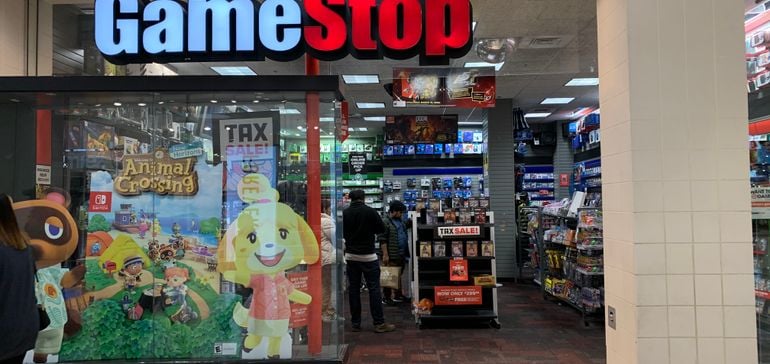Similar to GameStop’s second quarter, the company is focused on profitability, according to Furlong.
“Looking ahead, we have two overarching priorities: achieving profitability in the near term and driving pragmatic growth over the long term,” Furlong said on a call Wednesday. “[W]e are going to be very judicious with respect to how we allocate capital to the core business.”
Despite a sharp decline in cash during Q3, Furlong added that maintaining a decent cash position amid economic pressures will be key going forward. He also hinted at the potential for future business deals, saying, “if a strategic asset or complementary business becomes available in the right price range, we want to be able to explore those acquisitions.”
Over the past year, the brick-and-mortar retailer has bet big on non-fungible tokens and cryptocurrencies. It launched an NFT marketplace in July, and a digital wallet for crypto-based assets in May. In September, the company announced a partnership with FTX US that included selling the cryptocurrency exchange’s gift cards in some stores. FTX US is part of the FTX Group that has since filed for Chapter 11 bankruptcy following a disastrous downfall involving its CEO and founder Sam Bankman-Fried, who is now under investigation by federal prosecutors.
Furlong on Wednesday said GameStop believes in the long-term potential of cryptocurrencies, but stressed that the retailer “proactively minimized exposure to cryptocurrency risks throughout the year, and does not currently hold a material balance of any token.” Even more, he noted that the company has not and will not “risk meaningful stockholder capital in the space.”
The overall Q3 results did not make for happy reading, according to GlobalData Managing Director Neil Saunders, who added that the company could benefit from shifting its focus away from cryptocurrency.
“One thing it should explore more deeply is the metaverse and virtual reality, perhaps looking to partner with a player like Meta to help educate and inform consumers about this emerging technology,” Saunders said in emailed comments. “These negative numbers come despite various rounds of costs and job cutting, and they do not suggest to us that the company is anywhere near on a sustainable trajectory.”
Get the free daily newsletter read by industry experts
As demand wavers and capital gets harder to find, the number of companies at risk has soared from last year.
Gap, Home Depot, Reebok, Glossier: There was a collective changing of the guard in retail this year as struggling brands sought new leaders and founders took a step back.
Subscribe to Retail Dive for top news, trends & analysis
Get the free daily newsletter read by industry experts
As demand wavers and capital gets harder to find, the number of companies at risk has soared from last year.
Gap, Home Depot, Reebok, Glossier: There was a collective changing of the guard in retail this year as struggling brands sought new leaders and founders took a step back.
The free newsletter covering the top industry headlines
Author
Administraroot


